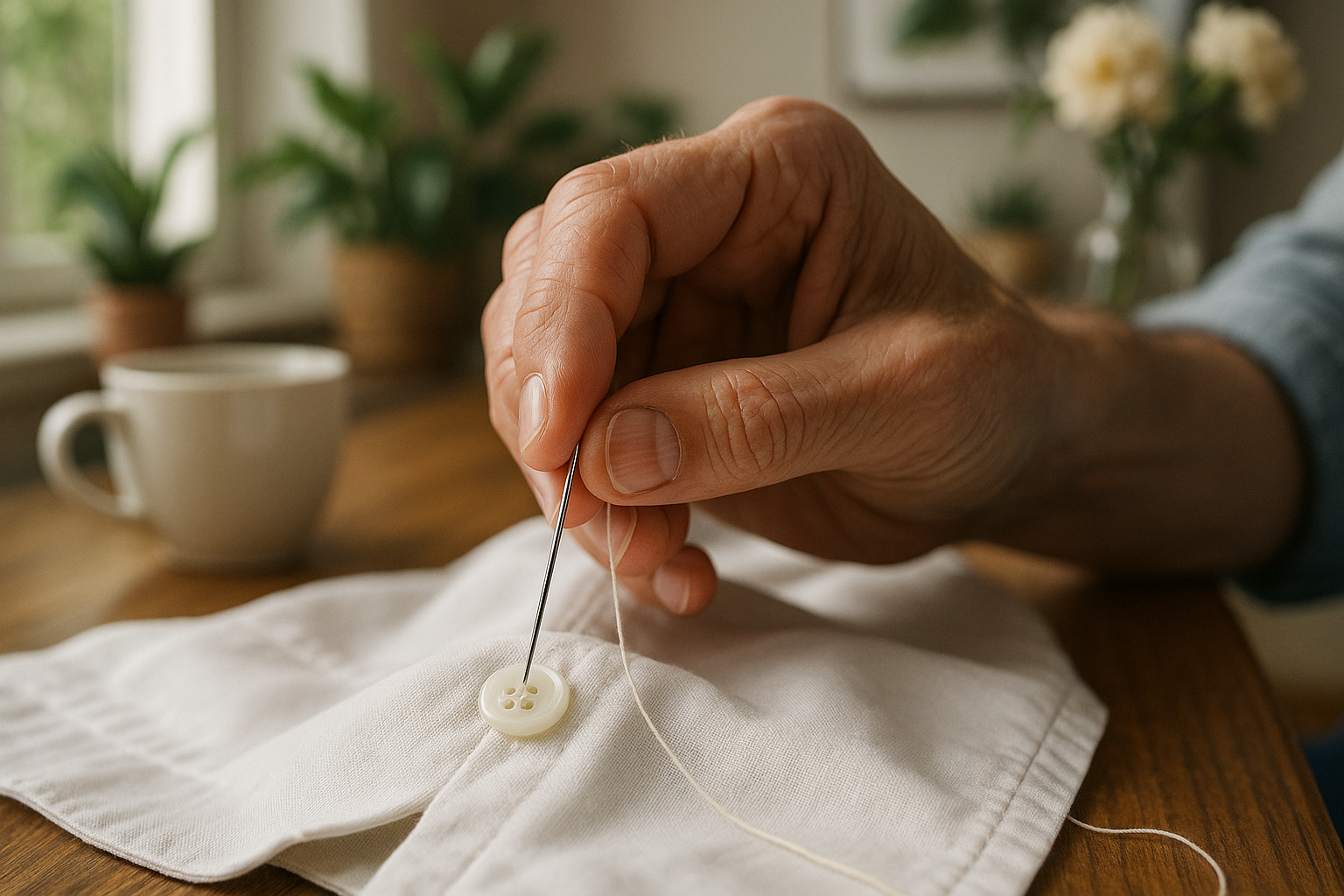But consider this: the intricacies of manipulating a computer mouse, the careful positioning of fingers on a keyboard, or the delicate handling of a sensitive piece of machinery are all manifestations of fine motor skills at work. 🖱️⌨️🧠
In this article, we aim to delve into the fascinating world of fine motor skills, illuminating its importance in our daily lives, and highlighting how we can improve them to enhance our performance in everyday tasks and activities. From buttoning a shirt, wielding a paintbrush to creating intricate blueprints on a CAD system, fine motor skills are an integral part of our lives.✍️🎨👔
What Are Fine Motor Skills?
Before we explore the labyrinth of fine motor skills, let’s first demystify what they are. Fine motor skills involve the coordination of small muscles in the hands and fingers, often in conjunction with the eyes, to perform delicate and precise tasks. These skills are central to most daily activities, which involve the manipulation and control of objects to achieve specific results.⚙️🔍
Unlocking the Power of Precision
But why is mastering precision so important? The answer lies in the power it unleashes. Precision can be the dividing line between success and failure in a multitude of tasks and activities. Think about typing: the more accurately and rapidly you can hit the keys, the more productive you will be. Or consider playing an instrument: precision is key to hitting the right notes and creating beautiful music.🎵⚡
The Everyday Impact of Fine Motor Skills
We are often unaware of the impact of fine motor skills on our everyday lives. Their invisibility can sometimes lead us to underestimate their importance. However, improving these skills can have a profound effect on our daily tasks, from writing neatly, to cooking efficiently, to performing well in sports.⚾🥘✏️
But it goes beyond the routine. Fine motor skills play a pivotal role in specialized fields as well. Consider an artist who paints with precision, a surgeon who performs delicate operations, or a programmer who writes lines of code accurately. In each case, precision, driven by fine motor skills, is at the heart of their success.🎨👨⚕️💻
Mastering Precision: The Path to Success
Mastering precision is a journey. It requires understanding the importance of fine motor skills, recognizing their role in our lives, and learning how to enhance them. In the following sections, we will delve deeper into the world of fine motor skills, exploring its various aspects, and offering guidance on how to improve them for better performance in everyday tasks and activities.⚙️🎯
So, are you ready to unlock the power of precision and elevate your performance in everyday tasks and activities? If so, keep reading. This comprehensive guide is designed to enlighten, educate, and empower you on this journey of mastering precision. Let’s dive in!💡📚🚀
Understanding the Power of Fine Motor Skills
Have you ever marveled at the precision of a skilled surgeon, the delicate hand of a jeweler, or the fast typing speed of a professional programmer? These highly specific and refined movements are examples of fine motor skills in action. Fine motor skills are the coordination of small muscles, primarily in the hands and fingers, with the eyes. They enable actions such as picking up small objects, writing carefully, and fastening buttons. In the technological and digital age, these skills are more valuable than ever.
Fine motor skills may seem insignificant in the grand scheme of life. However, they play an essential role in both our professional and personal lives. They help us perform everyday tasks efficiently, from typing an email to tying our shoelaces. Moreover, mastering precision through fine motor skills can unlock a new level of success in various fields, ranging from arts and crafts to engineering and surgery.
So, how can one improve their fine motor skills? What is the science behind these intricate skills? And what role do these skills play in our day-to-day life? In this article, we delve into the fascinating world of fine motor skills, their importance, and ways to improve them. To better grasp this concept, watch this enlightening video: “The science of fine motor skills” by SciShow.
The Science Behind Fine Motor Skills
The magic of fine motor skills starts in the brain. The brain’s motor cortex controls all voluntary movements, including the refined movements of the fingers. These signals are transmitted through the spinal cord to the muscles causing them to move. However, fine motor skills require a high level of coordination between the brain, nervous system, and muscles.
The cerebellum, a part of the brain, plays a critical role in this coordination. It ensures that each muscle contraction is precise and well-timed, enabling us to perform delicate tasks like threading a needle or playing a musical instrument. Additionally, the basal ganglia, another part of the brain, helps in the smooth execution of movements, preventing any sudden jerks or shifts.
Moreover, the development and refinement of these skills are closely linked with cognitive development. As children grow, they start learning and practicing these skills through various activities like drawing, writing, and playing with toys. Over time, these skills become more sophisticated and are applied in more complex tasks. For an engaging explanation of this process, check out the video “How Fine Motor Skills Impact Cognitive Development” by Dr. Binocs Show.
Boosting Fine Motor Skills: Techniques and Strategies
Improving fine motor skills requires consistent practice and focused effort. Here are a few strategies and techniques that can be employed to boost these skills.
- Hand exercises: Engage in hand and finger exercises to improve strength and agility. This could include activities like squeezing a stress ball, finger stretching, or playing with play dough.
- Use tools: Use tools that require precision and control, such as pencils, paintbrushes, and scissors. These can help refine your fine motor skills.
- Puzzles and games: Puzzles, board games, and video games that require strategic movements can be effective in improving fine motor skills.
Technology and Fine Motor Skills
In the digital age, technology plays a significant role in the development and refinement of fine motor skills. Touchscreens, keyboards, and gaming consoles provide ample opportunities for practicing these skills. However, it’s crucial to maintain a balance and not over-rely on technology, as excessive screen time can lead to issues like digital eye strain and poor posture. For a comprehensive guide on using technology for fine motor skills development, watch the video “Fine Motor Skills and Technology: A Two-Way Street” by OTPlan.
Impact of Fine Motor Skills on Everyday Tasks and Activities
Fine motor skills have a profound impact on everyday tasks and activities. They enhance our efficiency, precision, and speed in performing tasks. From typing to cooking, these skills play a significant role in our daily lives.
| Tasks | Role of Fine Motor Skills |
|---|---|
| Typing | Accuracy and speed in typing are dependent on the fine motor skills of our fingers. |
| Cooking | Chopping vegetables, stirring a mixture, or decorating a cake require precision and control. |
| Drawing | Drawing and coloring require refined hand-eye coordination and control. |
Whether you’re a professional artist or a software engineer, mastering fine motor skills can significantly enhance your performance and productivity. So, take some time out of your busy schedule, and engage in activities that boost your fine motor skills. Not only will this add a fun element to your routine, but it will also pave the way for success in various everyday tasks and activities.

Conclusion
In conclusion, we have traversed the comprehensive panorama of intricate subjects that involve the fields of Information Technology and Engineering. Our journey has taken us from the fundamental understanding of software development processes, to the granular details of complex systems’ architecture, and finally, into the myriad possibilities that AI and machine learning promise to unleash.
The key takeaways from this extensive discourse have been the indispensability of proper software engineering practices, the criticality of robust systems’ architecture, and the transformative power of AI and machine learning. The importance of these subjects cannot be overstated in our increasingly digital world.
We explored the intricacies of software engineering, and underscored its significance as the foundation upon which our digital world is built. From the basics of writing clean code, to the nuances of debugging, testing and maintaining applications, every aspect of software engineering plays a crucial role in building robust and efficient systems. We also delved into the world of systems’ architecture, discussing how a well-designed structure can enhance system performance, scalability, and resilience.
Our exploration of AI and machine learning shone a light on how these emerging technologies are set to revolutionize various sectors, from healthcare and finance, to logistics and manufacturing. With their capacity to process vast amounts of data and make intelligent predictions, these technologies are poised to become indispensable tools in decision-making processes across industries.
While we have covered a lot of ground, the subjects we explored are vast and continually evolving. To stay abreast with the latest developments, I encourage you to continue your learning journey. For further reading, I recommend resources such as [IEEE Xplore](https://ieeexplore.ieee.org/) and [ACM Digital Library](https://dl.acm.org/), which offer a wealth of articles and research papers in the fields of IT and engineering. 📚
Finally, it is my sincere hope that this article has inspired you to delve deeper into these fascinating topics. Whether you are a professional in the field, or a curious enthusiast, there is always more to learn and discover. So, don’t hesitate to share your thoughts in the comments section below, and let’s continue the conversation! 🗨️
In the end, the power to drive change in our digital landscape lies in our hands. As we continue to innovate and push the boundaries of what is possible, let us remember to use our knowledge and skills responsibly, striving always to create solutions that are not just technically sound, but also socially beneficial and ethically aligned. 💡
Remember, knowledge shared is knowledge multiplied. So, feel free to share this article with your colleagues, friends, and anyone who might find it interesting. The more we spread knowledge, the more we grow, individually and collectively. 🌐
Thank you for investing your time in reading this article. Here’s to a future shaped by our collective wisdom and technological prowess! 🚀



